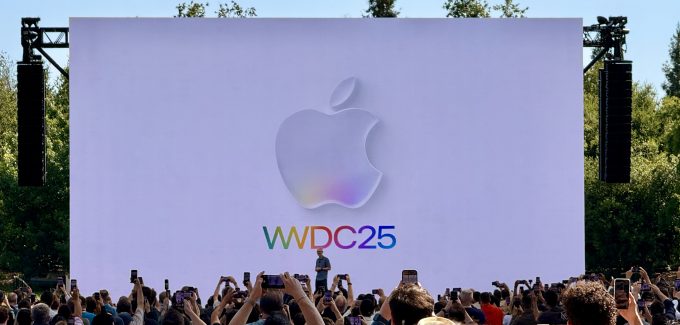The intersection of Non-Fungible Tokens (NFTs) and esports is reshaping the landscape of virtual economies. In recent years, esports has evolved from a niche interest to a global phenomenon, with millions of fans and lucrative revenue streams. Concurrently, NFTs have emerged as a groundbreaking technology, revolutionizing ownership, collectibles, and monetization in digital realms. When these two forces collide, the result is a dynamic ecosystem with profound implications for gamers, creators, and investors alike.
The Emergence of NFTs and Virtual Economies in Esports
Non-Fungible Tokens (NFTs) represent unique digital assets stored on a blockchain, making them verifiably scarce and indivisible. Unlike cryptocurrencies such as Bitcoin or Ethereum, which are fungible and interchangeable, each NFT possesses distinct attributes, providing ownership and provenance over digital content. Whether it's artwork, music, virtual real estate, or in-game items like match masters free gifts, NFTs empower creators and users to buy, sell, and trade digital assets with unprecedented security and transparency.
Esports, short for electronic sports, encompasses competitive gaming across various genres and platforms. With a global audience projected to surpass half a billion by 2024, esports tournaments have become spectacles rivaling traditional sports events. Games like League of Legends, Dota 2, Fortnite, and Counter-Strike: Global Offensive boast millions of players and viewers, fostering vibrant communities and lucrative sponsorship deals. Within these virtual worlds, players invest significant time and money to acquire in-game items, cosmetics, and exclusive content, driving the emergence of virtual economies.
Collectibles and Digital Ownership
Collectibles have long held a cherished place in human culture, serving as tangible symbols of our interests, passions, and memories. From rare stamps to vintage comics and sports memorabilia, collectibles evoke nostalgia and inspire connection among enthusiasts. In the digital age, however, the nature of collectibles has evolved. Digital assets, such as virtual items in video games, various coins on the best online casino sites, digital art, and multimedia content, have become increasingly prevalent forms of collectible expression, transcending physical boundaries and enabling global participation.
Artists, musicians, game developers, and content creators can mint NFTs representing their work, whether it's a digital painting, a piece of music, a virtual item, or an exclusive experience. Through NFT marketplaces, creators can reach global audiences, engage with fans directly, and retain ownership and control over their intellectual property. This democratization of creative expression has unlocked new opportunities for artists to thrive in the digital economy.
One of the key attributes of NFTs is their ability to confer authenticity and scarcity to digital assets. Each NFT is unique and verifiable, with its ownership history and metadata immutably recorded on the blockchain. This transparency ensures that collectors can trace the provenance of their NFTs and verify their authenticity, fostering trust and confidence in the marketplace. Moreover, the scarcity of NFTs, coupled with their indivisibility, enhances their perceived value and desirability among collectors, driving demand for unique and rare digital assets.
NFTs offer a paradigm shift in how we conceptualize ownership in the digital age. With NFTs, individuals can assert ownership over digital assets in a decentralized and immutable manner, free from the constraints of centralized intermediaries. Moreover, NFTs enable interoperability across different platforms and ecosystems, allowing users to seamlessly transfer and trade digital assets across a variety of applications and marketplaces. This interoperability expands the potential utility and liquidity of NFTs, creating vibrant and interconnected digital economies.
Monetization Opportunities for Players and Teams
Esports games often feature a variety of in-game items, skins, and collectibles that hold significant value within the gaming community. By tokenizing these digital assets as NFTs, players and teams can offer exclusive, limited-edition items to their fans. These NFTs can represent rare skins, unique character outfits, or special in-game items that hold sentimental or strategic value to players and collectors alike.
NFTs provide a platform for players and teams to create and sell digital autographs, memorabilia, and virtual experiences to their fans. Whether it's a personalized message, a digital signature, or a virtual meet-and-greet session, NFTs enable players to monetize their interactions with fans in innovative and personalized ways. These digital collectibles can serve as unique tokens of appreciation and connection between players and their supporters.
Esports teams can leverage NFTs to offer exclusive content, behind-the-scenes access, and VIP experiences to their fans. This could include access to private streams, exclusive merchandise, or virtual tours of team facilities. By minting NFTs that grant access to premium content and experiences, teams can cultivate deeper engagement with their fanbase and reward loyal supporters with unique perks and privileges.
NFTs offer a new avenue for esports teams to secure sponsorships and partnerships with brands and organizations. By minting branded NFTs and digital assets, teams can collaborate with sponsors to create exclusive merchandise, branded collectibles, and virtual advertising opportunities within their games and streams. These NFT-based partnerships provide brands with unique marketing channels and offer teams additional revenue streams to support their operations and player salaries.
Fan Engagement and Community Building
NFTs provide a platform for community-driven initiatives and events within esports ecosystems. Teams can organize NFT-based fundraisers, charity auctions, and community challenges that encourage fan participation and collaboration. These initiatives not only raise awareness for important causes but also strengthen the sense of community and solidarity among fans. By harnessing the power of NFTs, teams can leverage their platform to make a positive impact and engage fans in meaningful ways.
NFTs promote transparency and interactivity within esports communities by providing verifiable ownership and provenance of digital assets. Fans can track the history and authenticity of NFTs on the blockchain, ensuring trust and accountability in the marketplace. Moreover, NFTs enable interactive experiences such as digital auctions, live streams, and interactive storytelling, where fans can actively participate and shape the direction of the community.
Conclusion
NFTs are catalyzing a paradigm shift in the way we perceive ownership, collectibles, and monetization within esports and virtual economies. By leveraging blockchain technology, creators, players, and fans can participate in a decentralized ecosystem built on transparency, authenticity, and digital sovereignty. As the boundaries between the physical and digital worlds blur, NFTs offer a glimpse into the future of gaming, where imagination, creativity, and community converge to redefine the value of digital assets and experiences. As the esports industry continues to embrace innovation, NFTs are poised to play a transformative role in shaping its evolution for years to come.















